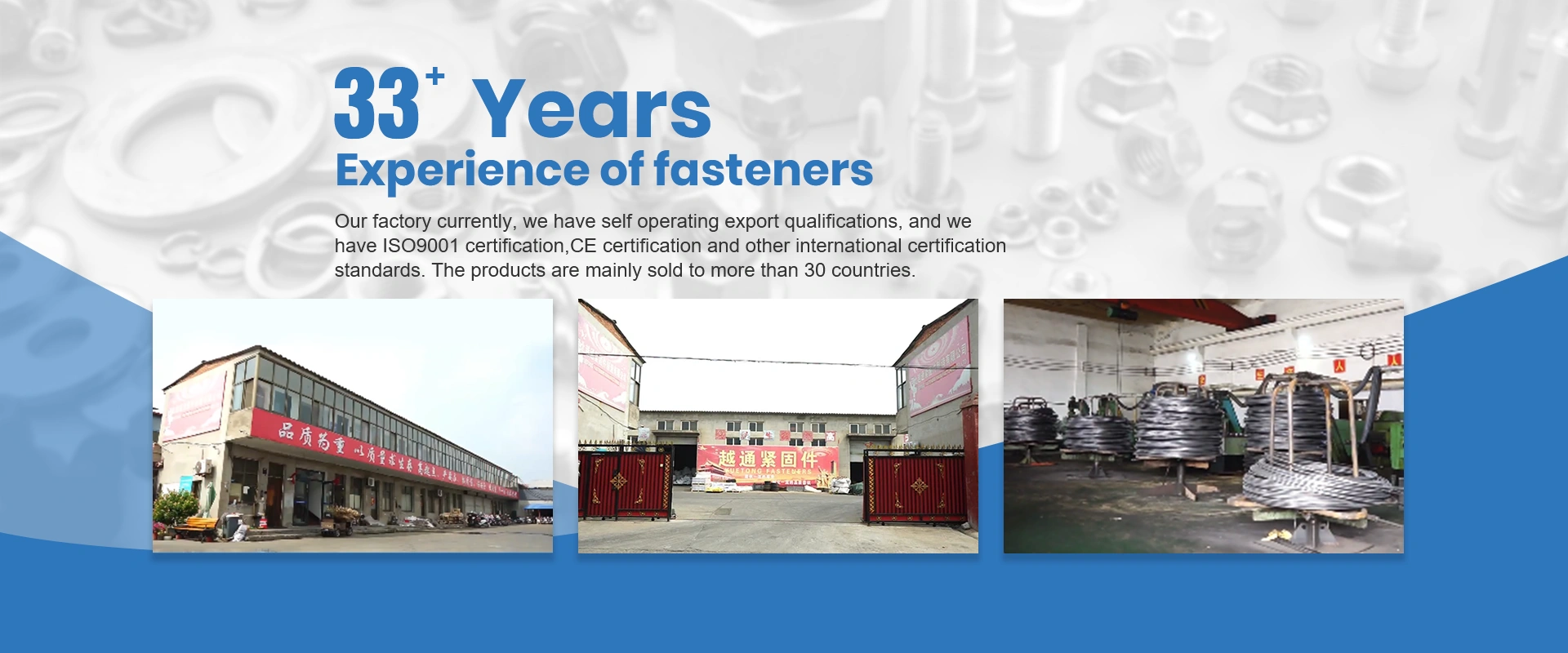Sep . 16, 2024 13:06 Back to list
Custom Flat Washers - Precision Engineered Solutions for Optimal Performance
Understanding Custom Flat Washers What You Need to Know
Flat washers are essential components in many mechanical assemblies, serving primarily to distribute the load of a bolt or nut across a wider area. This function helps to prevent damage to the surface being fastened and reduces the risk of materials being pulled through, which is especially important in construction and manufacturing. However, when standard flat washers do not meet specific requirements, custom flat washers come into play.
Custom flat washers are tailored to meet unique dimensions and specifications that off-the-shelf washers may not fulfill. These modifications can include changes in size, material, thickness, and even the shape of the washer itself. By opting for custom solutions, engineers and designers can ensure that their applications function optimally without the limitations posed by generic washers.
When considering custom flat washers, several factors should be taken into account. First, the material selection is critical. Depending on the environmental conditions and the nature of the application, different materials may offer varying degrees of strength, corrosion resistance, and thermal stability. For instance, stainless steel washers are favored in marine applications due to their resistance to rust and corrosion, while plastic or rubber washers may be preferred in scenarios where electrical insulation is necessary.
Next, the size and thickness of the washer must be specified accurately. This includes the inner diameter (which corresponds with the bolt or screw size) and the outer diameter (which affects the load distribution). The thickness of the washer can influence the overall strength and rigidity of the assembly. Therefore, taking precise measurements and understanding the requirements of the assembly is crucial.
custom flat washers

Another important aspect of custom flat washers is their shape
. While most washers are round, custom designs can incorporate different geometries to address specific challenges. For example, square washers can provide better load distribution in certain applications, while specialized shapes might provide additional benefits in terms of alignment or aesthetics.Manufacturers of custom flat washers often utilize advanced technologies and methods in their production processes. Techniques like CNC machining, stamping, and laser cutting ensure that the washers are made with precision and consistency. Additionally, quality control measures are essential to guarantee that each custom washer meets the required specifications and standards.
The process of ordering custom flat washers typically involves consultation with a manufacturer to discuss the requirements. It is vital to convey all necessary details, such as material type, size, quantity, and any specific characteristics that the washer should possess. Once these factors are clarified, manufacturers can provide a quote and estimated lead times for production.
In conclusion, custom flat washers are invaluable components in many industries, offering tailored solutions that enhance the performance and reliability of mechanical assemblies. By selecting the right materials, specifications, and manufacturing processes, businesses can ensure that their projects are completed successfully and efficiently. Whether it's for heavy machinery, automotive applications, or general construction use, custom flat washers can make a significant difference in overall functionality and longevity.


